Text
youtube
#ガンニバル#gannibal#~...Wooo a J-Horror Drama this on my list to watch 👁️#...Is adaptation of a manga(but personally I didn't read it) focus on cannibals...#again on that crap of Disney and his hypocrisy LoL#but looks good...~
3 notes
·
View notes
Text
THE GREAT FITZGERALD
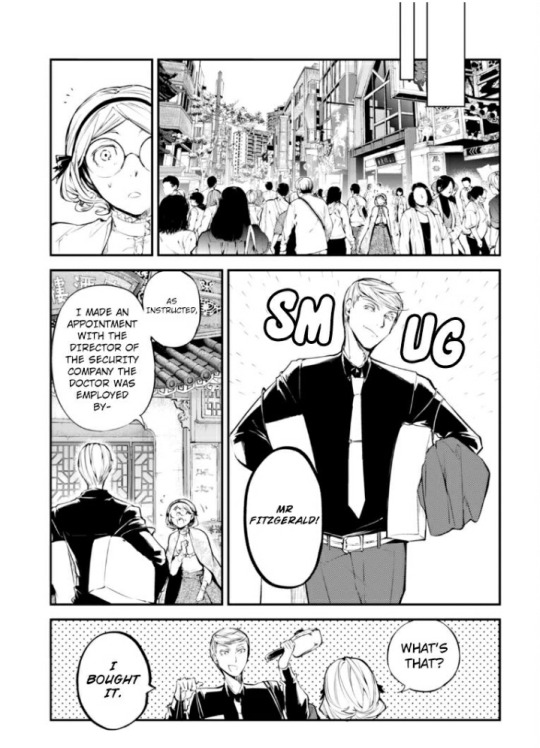
thank u @dazaistabletop for getting me so interested in Fitzgerald's character. ur my favourite Fitz kinnie ok mwah( ˘ ³˘)♥
Francis Scott Key Fitzgerald's novel— The Great Gatsby— was a love story that involved Jay Gatsby, whose mannerisms and characteristics appear to be quite similar to Fitzgerald in the Bungou Stray Dogs adaptation. I just finished reading The Great Gatsby so I thought I'd just make a comparison between the main protagonist of the novel and the main antagonist in BSD's Guild Arc.
Other than the fact that both Jay and Fitzgerald share similar character traits (ambitious, arrogant, and optimistic) the relationships Jay had with the other characters of the novel and the interactions that Fitzgerald had with the other characters of BSD are quite similar, too. I'll focus on three specific associations that both Fitzgerald and Jay experienced in a parallel manner:
Zelda Fitzgerald and Daisy Buchanan
Tom Buchanan
Louisa May Alcott and Nick Carraway
SPOILERS FOR THE GREAT GATSBY!
in case anyone hasn't read it but wants to :)
To avoid confusion, every time I mention Fitzgerald from here on out, I mean the character from BSD; I will specify my references if it comes to the author.
The Great Gatsby had its plot set around the time of the Roaring Twenties: the aftermath of World War I, the peak of socialite culture, and the growth of a prosperous economy and general wealth altogether.
The Roaring Twenties was also a time of luxurious pleasure and liquor, where people indulged themselves and got addicted to hedonism— the pursuit of gratification.
The Great Gatsby was actually written on the basis to prove how corrupt this age was, and the existence of such corruption was vaguely hinted by various factors, one of which included Jay Gatsby's actual source of income: being involved in the affairs of the black market. This proves that illegal activities were not uncommon around that time, as people did anything they could to achieve materialistic gains.
This isn't a history lesson, I promise.
Both Jay Gatsby and Fitzgerald had grown up in poverty and disliked the concept of being anything short of wealthy. They both worked extremely hard to attain financial abundance.
I presume that not everything they did was actually legal when it came to gaining money. As mentioned before, Jay was involved in criminal activities which founded the basis of his wealth, while Fitz once mentioned that in order to own a gun, he had to kill 4 people. He goes on to tell us that he ended up owning that specific gun's manufacturer eventually.
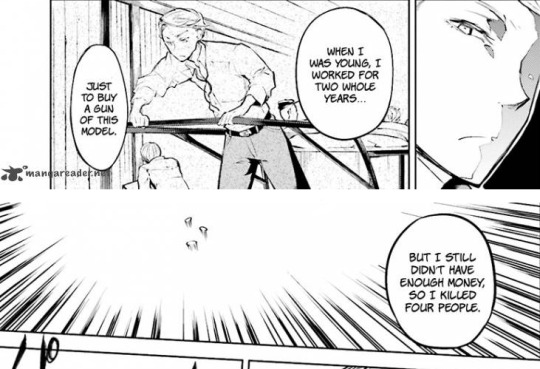
Daisy Buchanan and Zelda Fitzgerald.
The Great Gatsby is actually centered around Jay Gatsby's rather obsessive infatuation with Daisy.
Daisy was a beautiful lady with a incredibly charming nature— she didn't have much trouble with attracting many men back then before she got married to Tom Buchanan, the antagonist of the story and the rival of Jay Gatsby.
"Her voice was full of money," he said suddenly.
That was it. I'd never understood before. It was full of money— that was the inexhaustible chair that rose and fell in it, the jingle of it. the cymbals' song of it... High in a white palace the King's daughter, the golden girl...
Daisy and Jay Gatsby fell in love right before he was sent off to war and a few years before she met Tom. Before they were separated, Jay's dream of gaining wealth and status was primarily flamed by his intention of reaching Daisy's social ranking in order to be worthy of her love.
Initially, because of how passionate he was about his love for her, Jay lied to Daisy about his wealth. It was only after the War did he actually gain the riches he aimed for. By the time he did achieve his monetary goals, Daisy had married Tom already. Consequently, Jay hosted a bunch of lavish parties in order to gain her attention, prove himself and his love for her, and ultimately, win her back.
Jay perceived Daisy as a literal angel, void of any flaw whatsoever. He even tells Nick, the main character, that the fact that numerous men got romantically involved with such a lady just increased her value altogether.
But what gave it an air of breathless intensity was that Daisy lived there— it was as casual a thing to her as his tent out at camp was to him. There was a ripe mystery about it, a hint of bedrooms, of gay and radiant activities taking place through its corridors, and of romances that were not musty and laid away already in lavender but fresh and breathing and redolent of this year's shining motor cars and of dances whose flowers were scarcely withered. It excited him too that many men had already loved Daisy— it increased her value in his eyes. He felt their presence all about the house, pervading the air with the shades and echoes of still vibrant emotions.
As the story unfolded, Daisy's character was torn apart for a proper, more brutally realistic perspective of her true character, revealing a shallow, selfish lady who solely placed her interest in money and luxury, the things which she often took refuge in when things went wrong. As the plot developed itself, the actuality that Jay fell in love with the idea of Daisy, instead of Daisy herself, was much more evident. And it took quite some time for him to discover and acknowledge the truth.
Fitzgerald's love for Zelda was very apparent, too, except that it seemed more genuine and pragmatic. Not much is speculated about Fitz and Zelda's relationship in the Guild Arc, but his love for her was very deep, as everything he did was for her and their deceased daughter.
Side note: Fitzgerald (the author) based Daisy's character partially on Zelda, as both women were brought up in wealthy families and took a general liking to lifestyles revolving around money and ease.
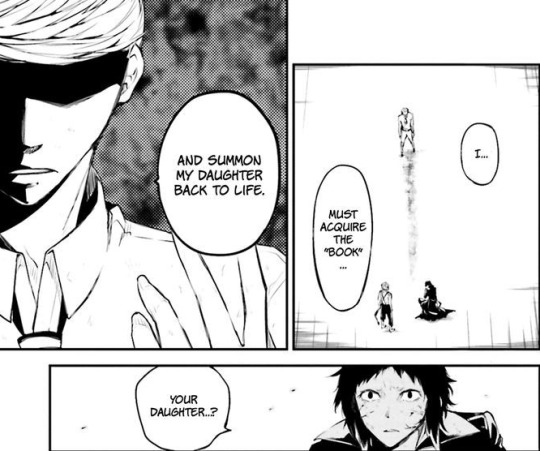

Fitzgerald was in love with Zelda, a woman plagued by a debilitating illness. In The Great Gatsby, Jay was in love with a woman who was plagued by the deceptive addiction of self-satisfaction gained by pleasure and whatnot. Zelda was impaired by an mental illness, while Daisy was intoxicated by the security of money and prestige. This is an abstract suggestion though. Personally, that's how I interpreted this correlation when it came to examining these dynamics in their respective universes.
Tom Buchanan
As mentioned before, Thomas Buchanan was Daisy's husband and Jay's rival who had similar characteristics in matters of personality. The Toms in both book and anime were arrogant and cunning, which pretty much vouches for their selfishness.
In the book, Tom is supposedly the love of Daisy's life, except that she just married him for his money instead of waiting for Gatsby. Then again, Tom was involved in a love affair outside his marriage with a lady named Myrtle Wilson. Tom cheated on Daisy by getting involved with Myrtle. On the other hand, Daisy was unfaithful to Tom by keeping her love and relationship with Jay a secret from him.
The climax of the story partly revolves around Myrtle dying in a hit-and-run car accident. The grand twist was that Daisy was the one driving the car, and the car actually belonged to Gatsby. Because the car belonged to Gatsby, George Wilson, the husband of Myrtle, was bent on revenge and tracked down the car. He ended up killing Jay Gatsby, and soon after that, he killed himself.
It was quite a scandal, but Daisy estranged herself from such a tedious matter. In fact, when Jay died, she did not even attend his funeral. Tom was under the impression that Gatsby was the one who killed his mistress, not Daisy, his wife. Either ways, Nick described them in a way that sums up what became of them after Jay's death:
They were careless people, Tom and Daisy— they smashed up things and creatures and then retreated back into their money or their vast carelessness or whatever it was that kept them together, and let other people clean up the mess they had made...
It's interesting to note that in chapter 45 of the BSD manga, Tom appears as the antagonist who was later found guilty of murdering his employee, but the blame was originally put on T.J Eckleburg, the inventor of the Eyes of God.

Side note: T.J. Eckleburg was actually an optician who appeared on a billboard advertisement in the novel. This billboard was used as a personification by Nick Carraway, which was meant to embody the representation of a displeased overseer who observed the events that unfolded before him. The Eyes of God has a similar concept: scrutinising everything with an accuracy of 97%. It's a personal speculation, but the Eyes of God was proven to be of utmost importance in the Cannibalism Arc when it came to capturing Fyodor Dostoevsky. Likewise, T.J. Eckleburg's eyes showed how corruption and misconduct never escaped his judgmental visage.
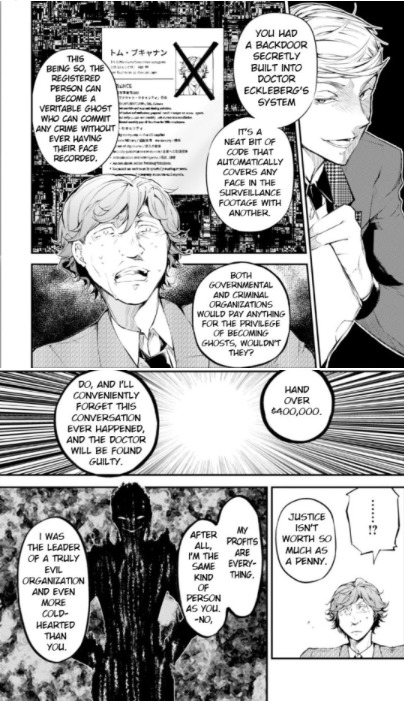
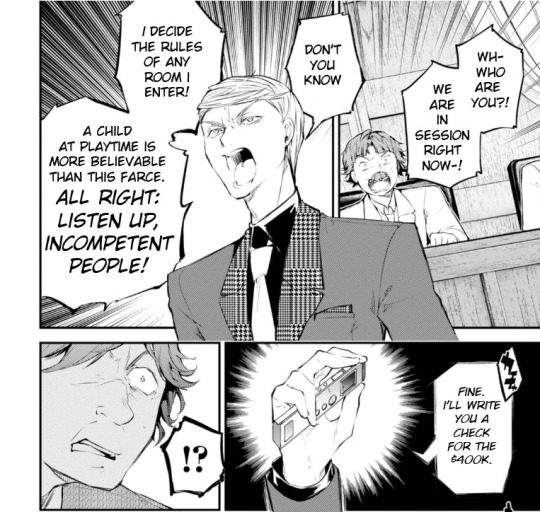
sorry about the quality of the manga panels ;-;
In the manga, Fitzgerald manages to triumph over Tom by betraying his trust altogether in order to obtain the ownership of the Eyes of God and Tom's company. This stands in contrast to what became of Jay in the novel, but the protagonist got what he wanted in this universe.
Keep in mind that Fitzgerald didn't act according to fulfil what justice required; it was purely business. Just like Jay Gatsby put on the facade of a plain, rich man who was really just bootlegging his way to opulence, Fitzgerald wasn't afraid to betray someone's trust to get what he wanted.
Nick Carraway and Louisa May Alcott
If I were to pick a character that represented Louisa May Alcott in BSD from the book, I'd pick the narrator himself: Nick Carraway. Again, this is my personal interpretation, so the association between these two characters is just my personal opinion.
Nick Carraway was known as the more reserved, cynical protagonist compared to Jay. The both of them developed a cordial friendship as the story progressed.
Nick initially took a liking to Gatsby, who was his neighbour. The enigmatic aura Gatsby emitted called for Nick's attention, and in the same way, Gatsby reciprocated his interest in Nick by making the effort to acquaint himself with him.
He had one of those rare smiles with a quality of eternal reassurance in it, that you may come across four or five times in life. It faced, or seemed to face, the whole external world for an instant and then concentrated on you with an irresistible prejudice in your favor. It understood you just as far as you wanted to be understood, believed in you as you would like to believe in yourself.
There were a few times which suggests that Nick didn't like the way Gatsby acted or spoke. Nevertheless, Nick was the only one who stuck with Gatsby until the end.
"They're a rotten crowd," I shouted across the lawn. "You're worth the whole damn bunch put together.
(This was the last thing Nick said to Jay before he died.)
At first, Nick was intrigued by Jay's mystical nature and peculiar idiosyncrasies, but found that Gatsby was a very strange, but 'morally bad' man. However, over time, Nick became one of the few who managed to recognise Gatsby's idealistic ambitions; he saw through all the fame and wealth and found a mere human being capable of being entrapped by love's snares. Basically, he understood Gatsby, despite disagreeing with his actions and even his behaviour at times.
As for Louisa, well, it is a known fact that she was loyal to Fitzgerald because of how much she respected and trusted him.
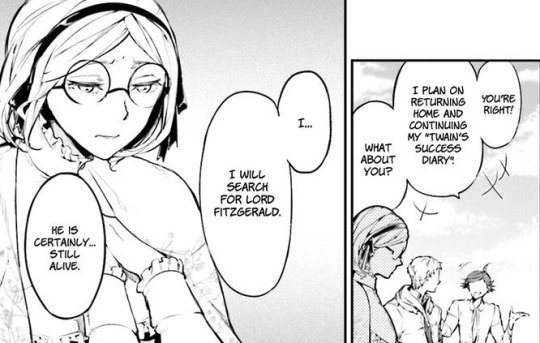

Both Nick and Louisa were intelligent, witty people with generally nice, honest, and reserved dispositions. Their self-contained demeanours make it very easy to get along with the more exurbent/dominant personas of Gatsby and Fitzgerald. So in the event where each pair was isolated from the rest of the world, they had each other to depend on.
Next morning I sent the butler to New York with a letter to Wolfsheim, which asked for information and urged him to come out on the next train. That request seemed superfluous when I wrote it. I was sure he’d start when he saw the newspapers, just as I was sure a there’d be a wire from Daisy before noon – but neither a wire nor Mr. Wolfsheim arrived; no one arrived except more police and photographers and newspaper men. When the butler brought back Wolfsheim’s answer I began to have a feeling of defiance, of scornful solidarity between Gatsby and me against them all.
Such a dynamic created a close bond of trust. Just as Nick was not hesitant to stick by Gatsby's side, Louisa went to great extents just to return Fitzgerald back to his former leading position and work together with him.
Side note: Nick Carraway is suggested to have the INTP personality type, while Louisa is most likely an INFP. Both these personalities are strikingly similar in many ways. They are individualistic in thinking and described as 'seekers' of their place in the world. If you're interested in a more detailed comparison, check this post out
Alright, that's about it for my speculations; I hope they weren't too messy. Thank you so much for reading!
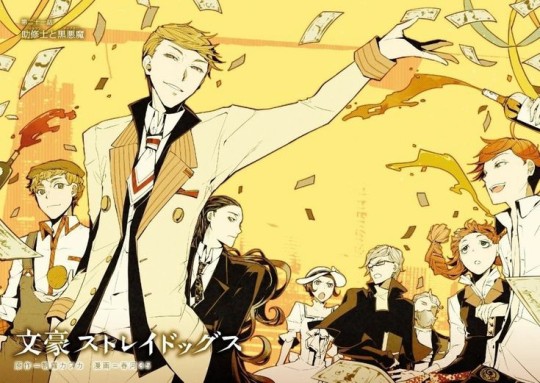
��So we beat on, boats against the current, borne back ceaselessly into the past.”
- Nick Carraway, The Great Gatsby
#bungo stray dogs#bsd#bsd characters#character analysis#bsd analysis#bsd fitzgerald#bsd guild#literature analysis#port mafia#armed detective agency#the guild#bsd louisa may alcott#.ryley.speaks
102 notes
·
View notes